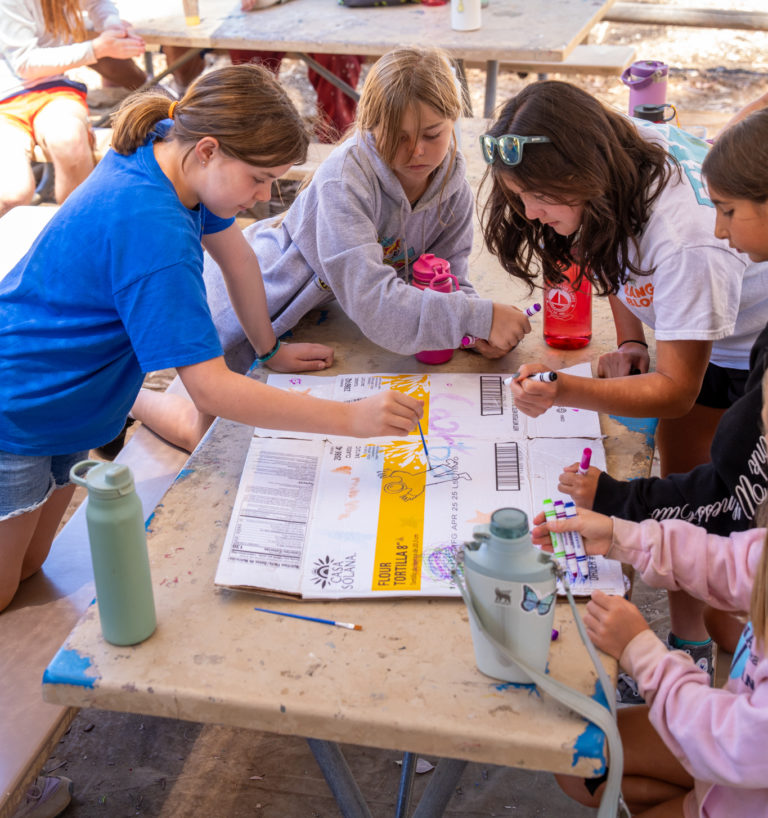Top 8 Ways to Prepare your Child for Sleepaway Camp
Top 8 Ways to Prepare your Child for Sleepaway Camp
Preparing your child for their first summer sleepaway camp is key to ensuring they have a positive, memorable experience. Here are the top 8 ways to prepare your child for sleepaway camp:
1. Normalize Being Away from Home
Why: If your child has never spent nights away from home, sleepaway camp may feel overwhelming.
How:
• Arrange sleepovers with friends or family members to get them comfortable being away from home.
• Start with one night, then increase to a weekend.
• Encourage them to pack their own bag and sleep in unfamiliar places to mimic the camp experience.
2. Let Them Help Pack Their Bag
Why: Packing their own bag helps them feel in control and familiar with their belongings.
How:
• Give them a packing list (provided by the camp) and let them pack their own clothes, toiletries, and personal items.
• Label EVERYTHING with their name.
• Include a special comfort item like a stuffed animal, blanket, or family photo (if the camp allows it).
• Let them know they’ll be responsible for keeping track of their things at camp.
3. Talk About Homesickness — and Normalize It
Why: Most first-time campers experience some level of homesickness, and it’s completely normal.
How:
• Talk about it ahead of time. Say something like: “It’s totally normal to miss home sometimes, but it doesn’t mean you’re not having fun.”
• Share your own stories of being away from home if you have any.
• Avoid saying, “If you don’t like it, we’ll come get you.” Instead say, “I know you’ll have fun, and we can’t wait to hear all about it.”
• Teach them small strategies to cope, like writing a letter, talking to a counselor, or staying busy with activities.
4. Encourage Independence Before Camp
Why: Camp requires kids to do things on their own — from brushing teeth to making their bed.
How:
• Have them practice basic life skills at home like:
o Making their bed.
o Picking out their clothes.
o Showering without reminders.
o Packing their backpack for school or day trips.
• Encourage them to solve small problems on their own before asking for help.
Bonus Tip: Tell them, “At camp, you’ll be able to do so many things all by yourself. I’m excited to hear about it!”
5. Avoid Over-Communicating Before Camp Starts
Why: Over-explaining or constantly checking in on how they feel can increase their anxiety.
How:
• Keep camp conversations light and positive.
• Avoid saying things like, “I’m going to miss you so much” or “What if you get homesick?”
• Instead, say: “I’m so excited for all the fun things you’ll do at camp. I bet you’ll make so many new friends!”
Bonus Tip: Save your emotions for after they leave. They feed off your energy, so stay positive.
6. Set Expectations Around Communication
Why: Many camps have limited communication with home (like no phone calls). This can be surprising for first-time campers.
How:
• Learn and explain the camp’s communication policy ahead of time.
• If the camp allows letters or emails, pack pre-addressed, stamped envelopes so they can easily write home.
Bonus Tip: Keep your emails upbeat and don’t say how much you miss them — it can trigger homesickness.
7. Get Them Excited About Camp Activities
Why: Building excitement helps reduce anxiety.
How:
• Review the camp’s website or social media together to see photos of activities.
• Talk about things they might enjoy like archery, sailing, or standup paddle boarding.
Bonus Tip: Have them choose one new activity they’ve never tried before and set it as a goal.
8. Stay Positive During Drop-Off
Why: Drop-off is when nerves peak — for both kids and parents.
How:
• Keep your goodbye short and confident. Avoid long emotional goodbyes.
• Say something like: “I love you, have an amazing time, and I can’t wait to hear all about it.”
• Fight the urge to cry or linger. Kids take cues from you — if you seem confident, they’ll feel confident.
• Trust the camp staff to handle any homesickness.
Bonus Tip: Most kids recover from homesickness within the first 24-48 hours once they dive into camp life.
Final Thought:
The goal is to build excitement, independence, and confidence before they leave. Sleepaway camp is a transformative experience that helps kids build resilience, social skills, and independence.
